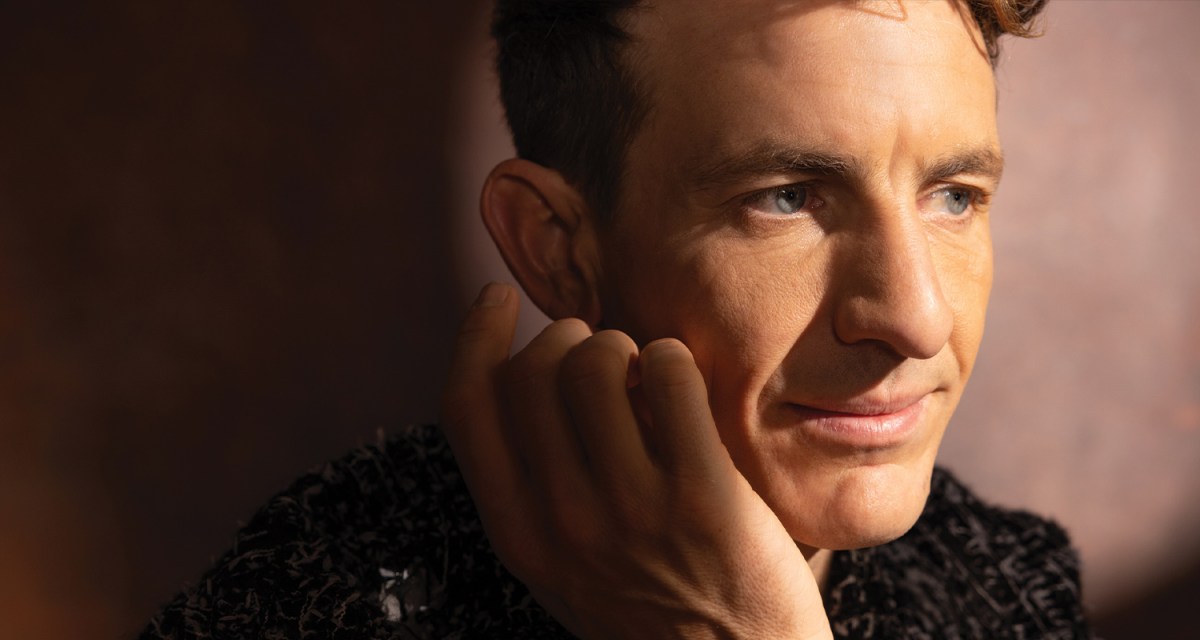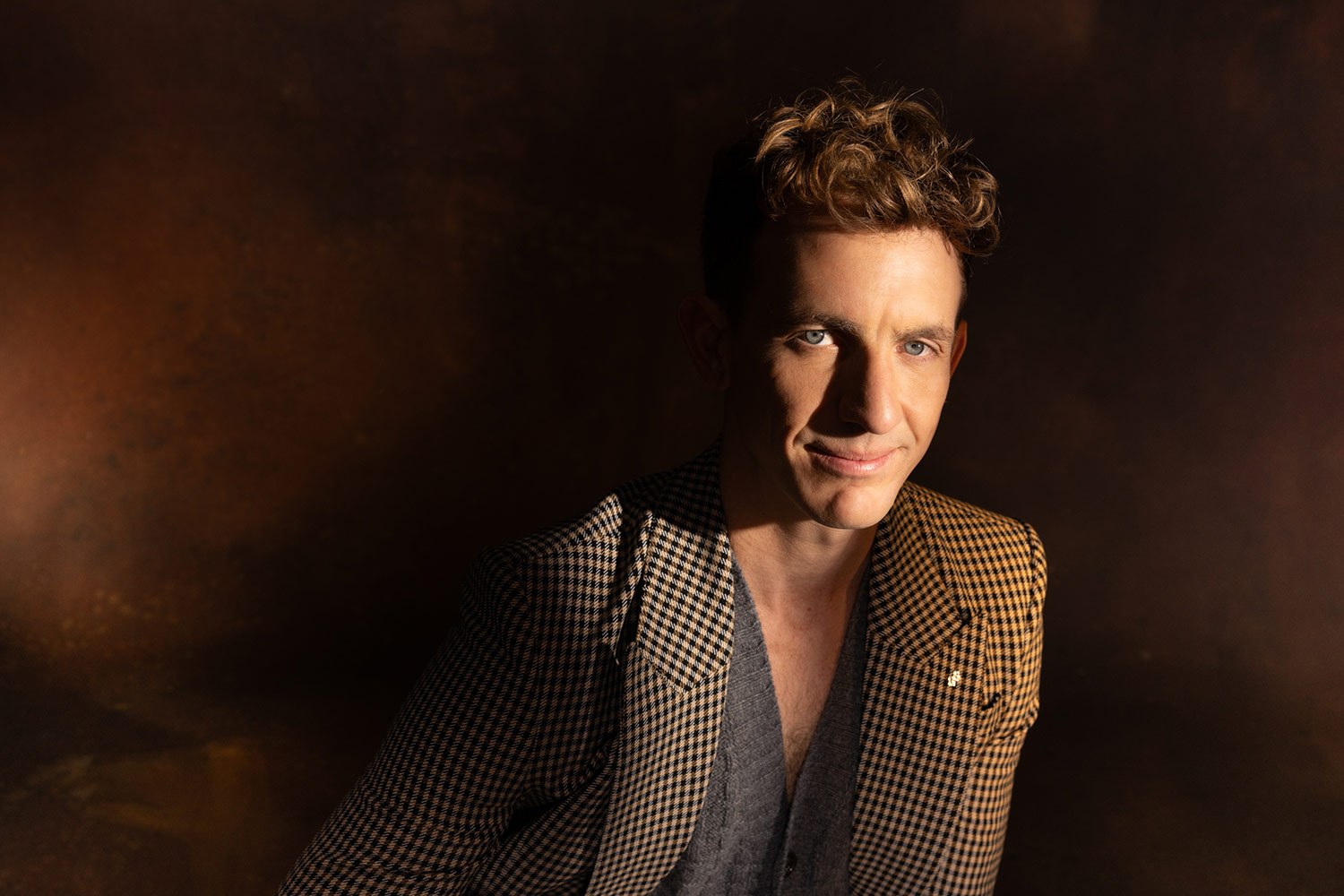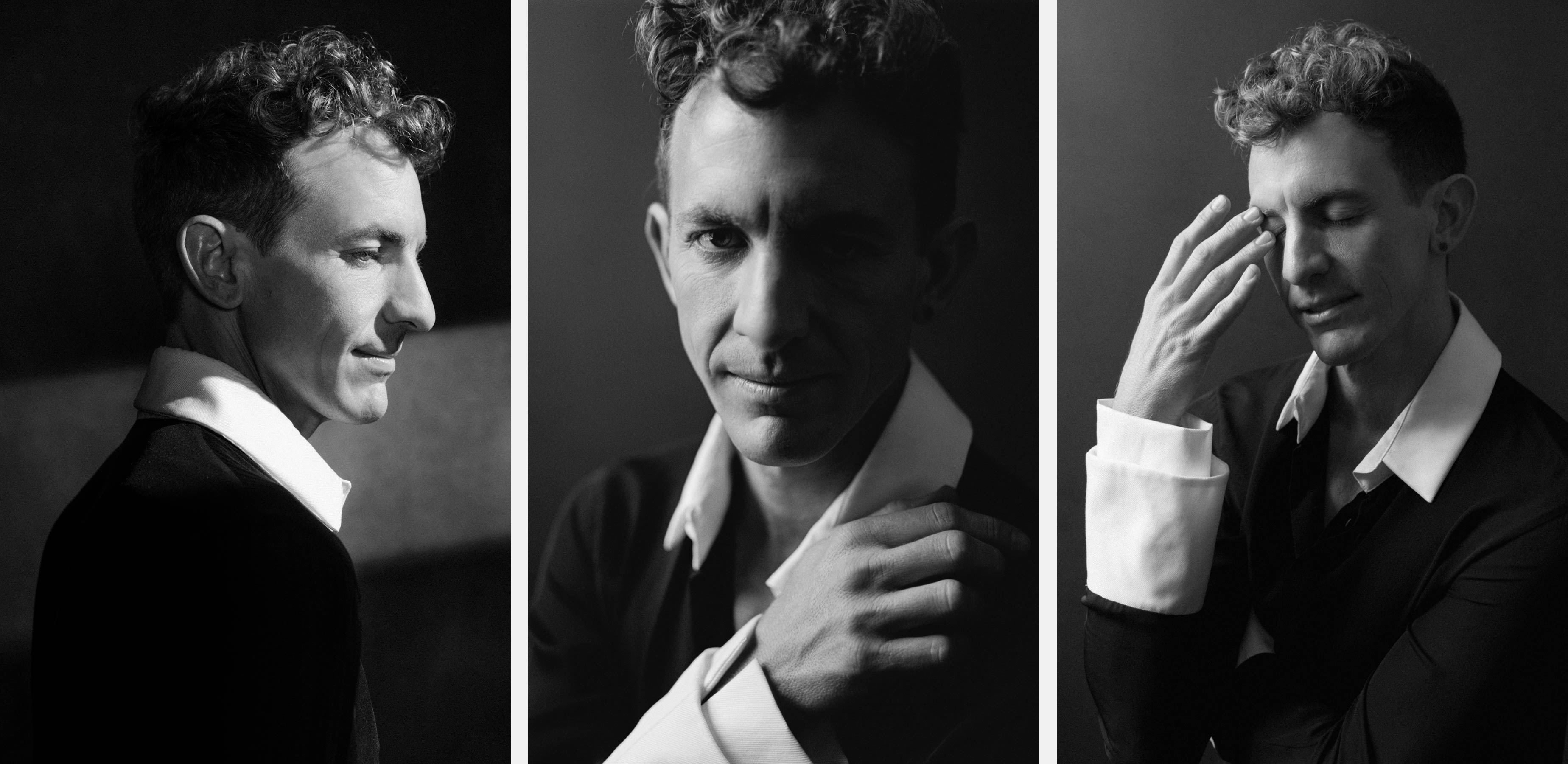
Buck Meek didn’t initially set out to write an album of love songs. In fact, the singer/songwriter and guitarist for Big Thief didn’t have any particular concept in mind when he began writing what would eventually become his third solo album, Haunted Mountain.
“I rarely can predetermine what an album or a collection of songs is about,” he tells InsideHook. “They usually start from a pretty subconscious place, I think.” This time, however, it started with a specific assignment that yielded some unexpected results.
“The song ‘Didn’t Know You Then’ was originally kind of catalyzed by this songwriting class I took with an artist named Luke Temple, who’s one of my heroes,” Meek explains. “And one of the first exercises in his songwriting class was to write a love song with cliches. Like he talked about the history of romantic love and how it’s pretty recent concept, really just like in the last 400 years or something, and how we’re in kind of this like adolescent phase of romantic love where there’s a bit of a taboo around it, at least in popular culture with the advent of psychoanalysis and the concept of codependency — for good reason, you know. But nonetheless, we’re all still somehow moved by a love song.”
“And so he had us write a love song with just like the most blatant cliches as if we really believed them,” he continues. “So I originally wrote the chorus of ‘Didn’t Know You Then’ with the words, ‘I’m nothing without you with nothing to die for. My love is only, my life is only waiting.’ And it was like a joke, I just kind of wrote it as like a game. But then I sang it for my wife, and she turned red. And something about the earnestness of it felt really powerful.”

He eventually rewrote the chorus, fine-tuning it into something that felt more authentic to his relationship with his wife. The more he wrote, the more he was struck by the catharsis of penning songs about love — romantic, platonic and everything in-between.
“It started as a game, and then it felt like just this really honest confessional thing that actually felt really good,” he says. “And so that was one of the signs to start pushing into that. But I guess what I really wanted to talk about in all realms of love, whether it be like romantic or the love of a friend or your mother or a mountain, is just like the work that’s required in love, the work that’s required in a human relationship, to actually be in a reciprocal relationship and how hard it is.”
Those of us who grew up in the flatlands might not immediately understand what the love of a mountain entails, but as one might guess from Haunted Mountain‘s title, natural peaks are also a recurring theme on Meek’s record. Northern California’s Mount Shasta makes several appearances in its lyrics, and the songs themselves were mostly written in the mountains. And, like the love between two human beings, they can be a challenge.
“Personally, I love the volatility of the mountains,” Meek explains. “It’s just a volatile environment. They’re pretty uninhabitable, I think until pretty recently. Just the landslides and the avalanches and the fires…there’s a humility that comes from the mountains that I think is healthy for me. They remind me of my insignificance and my fragility, which is humbling. And that’s all always really grounding to me. Helps put things in perspective. Even visually, just seeing the earth above you, seeing the earth in those dimensions, in three dimensions like that, just gives me perspective.”

Of course, Meek’s perspective isn’t the only one on Haunted Mountain. He co-wrote five of its 11 tracks with Jolie Holland, a fellow Texas native and a kindred spirit he grew up idolizing.
“Jolie has always been a hero of mine,” he says. “I first heard her music when I was maybe 15 or 16 on the radio, on KUTX in Texas. And she was one of the first people that really inspired me to write songs in the first place. I grew up playing jazz and blues, a lot of ragtime and stuff. And hearing her songs, Catalpa and Escondida, those records really inspired me to write my first songs.”
When he moved to New York City in his early 20s, he found out she was teaching songwriting lessons and jumped at the opportunity. “I remember I had brought in a song that had a couple verses and a chorus, and I had written the first couple verses and the chorus in like 10 minutes,” he recalls. “And then I had been just like, tormented by this song for like six months trying to write a third verse. I couldn’t write a third verse. I was obsessed with this idea that it was unfinished. And then I brought it to her and I showed her, and I was like, ‘Would you have any advice for where this could go?’ And her advice was that it was done. She’s like, ‘It’s done. Just call it done.'” He laughs. “That was really freeing. But otherwise we just talked and became friends. And that was the only lesson I ever took. But we were friends for maybe even 10 years before we even wrote together, which is my favorite way to write. I feel like I’ve tried to write with people that I don’t really know, and sometimes it works, but I’d rather it be an extension of a friendship.”

That’s how it is in Big Thief, where he collaborates and occasionally co-writes with frontwoman Adrianne Lenker. (Lenker and Meek were married not long after they began performing together, and they divorced in 2018, though the bandmates remain “deep friends,” as Lenker once put it.) But Meek says his solo material scratches a different creative itch for him.
“It’s always changing, and I hope it’s ever-changing,” he says. “But I think whenever Adrianne and I first met, we were playing as a duo, and we were both writing songs for our project under our names Adrianne Lenker and Buck Meek, and we made a record called the a-sides and b-sides. That was a combination of both of our songs and some co-written songs. And when we came together, we started writing together. But I think we toured for two years like that, made one record, and then it felt like we were both just needing to have a little more autonomy in the writing process. At the time, it just felt like we both wanted autonomy to be able to fully commit to our voice, in developing our voice. And so we split our projects, with Big Thief being primarily her songwriting project and Buck Meek being mine. It just kind of gives space for our independent, individual voices.”
“She’s co-written songs for my project, and I’ve still written a handful of songs for Big Thief with her, but there’s a little bit of clarity in the roles,” he adds. “And for me, as a songwriter, it was scary for me to step out on my own because I really didn’t start writing songs seriously until I was in high school or early college, really. So I think I had to step out of the nest a little bit, and it was vulnerable at first, but I think it was really healthy for me to push out of that comfort zone of having a co-writer and just be alone in it, to feel totally naked. It was scary, but I think I needed that.”

One might assume it’s scarier now that Big Thief has ascended to the level it has, earning Grammy nominations, critical acclaim, talk-show appearances and even viral TikTok fame — but Meek is quick to laugh off the latter. Earlier this summer, the band finally released a studio version of “Vampire Empire,” a beloved, previously unreleased staple of their live sets that racked up over 48 million views on the social media platform after they performed it on Colbert. They tweaked some lyrics and changed up some of the arrangements, and some fans who were only familiar with the live version they’d seen on TV were disappointed. The group was surprised by the response, Meek says, but found it to be “hilarious.”
“Most of our songs — I guess all songs probably for every band that’s ever existed — are a fluid thing,” he explains. “They go through so many iterations in the writing process. They start as just a random seed, and then they go through iteration after iteration until we call them finished. And then we play them with the band, and then maybe in rehearsal we completely flip everything upside down and rearrange things or tweak certain words, and then we call it finished again. And then we start playing it live and testing our first arrangement, and it doesn’t really work, and so we change the arrangement. Sometimes we go through multiple iterations of an arrangement and change the key and change the chords entirely or change some lyrics or change the time signature or the tempo or whatever. But basically there’s no such thing as a song ever being finished.”
“And so ‘Vampire Empire’ was really interesting because it’s no different than any other song probably ever written on Earth, but we played the song on Colbert and there’s this little snippet of it that blew up on TikTok, and a bunch of high-school kids basically started memeing this one little snippet of the song with a specific lyric, and it became something far beyond our song,” he continues. “It was suddenly getting synthesized with all these other graphics and videos and everything. And then we went into the studio and recorded it for the first time, and we changed a couple lyrics and there was this uproar. A lot of people were upset that we changed the song, but yeah. It was just hilarious to us. Because the truth is, that’s just the way every song is, but there is just this really hilarious, unique kind of ecosystem right now with the rub between social media and all these different realms of perception, all these different paradigms kind of rubbing up against each other. But yeah, I’m actually happy it happened because it started a conversation and maybe helps people understand that songs are fluid.”

Sometimes, songs can even continue to evolve long after people who wrote them have passed on. That was the case on Haunted Mountain‘s “The Rainbow,” which Meek wrote using some unfinished, never-before-released lyrics by the late, great Judee Sill. Carrying the song over the finish line presented a unique challenge, as he tried to marry another artist’s vision with his own creative impulses.
“I’ve always really, really loved Judee Sill’s work, and I was asked to put some of her unfinished lyrics to music,” Meek says. “I was given her journals. And the very last journal entry in the journal I was given was this unfinished song to her ex-boyfriend and his daughter who she was very close with. There was not a song form or chords or a melody; it was just unfinished lyrics. Very rough drafted, but there was some very clear themes. And so I tried to just decode it. It was like a puzzle or something, ’cause I had to kind of figure out where the heart of the song was and try to hear the melody that maybe she was imagining because there was no melody or chords. And so I had to kind of use the phonetics of the words to create a melodic rhythm. And then, one thing I’ve always loved about her songwriting is how she has a really deep sense of harmony in regards to storytelling. I feel like she uses harmony and melody to really illuminate the tension and release of a story in a more subtle way than like the obvious major and minor chords. She really understands the subtle emotional impacts of tension and chord substitutions and all that stuff. So I tried to keep that in mind in telling the story, I guess. Writing a melody that maybe she would’ve written.”
Now that Haunted Mountain is out in the world, however, Meek is relieved to be able to continue writing — for himself and for Big Thief. He’ll be hitting the road this winter in support of the record, but from a songwriting perspective, he’s ready to keep moving forward.
“Until I release the album, it’s hard for me to start writing the next album or really start manifesting the next album,” he says. “And so I guess that’s the most fulfilling thing, just moving through that cycle. My friend Van Neistat who has a YouTube channel called ‘The Spirited Man,’ he talks about this idea that the reward for good work is more work. That’s the reward.”

************
Editor: Bonnie Stiernberg
Photography: Ebru Yildiz
Creative /Fashion Direction: Kevin Breen
Assistant: Wesley Ritter
Grooming: Valissa Yoe
Thanks for reading InsideHook.
Sign up for our daily newsletter to get more stories just like this.